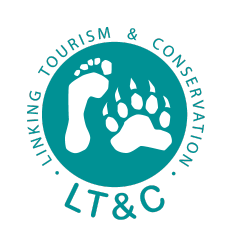Giorgio Scala, the CEO of the media company Deepbluemedia, is one of our Emperor Penguin-members, and as an official photographer of FINA (International Federation of Swimming), LEN (European Swimming Federation) and of the Italian and Russian Swimming Federations, he supports LT&C and has his own view on what the organization is about and its desired future development. As we are highly keen on listening to different voices and opinions of people that are interested in the development of LT&C (see also the outcome of our recent 5th-anniversary meeting), Peter Prokosch had the chance to conduct an interview with Giorgio:

Giorgio, you are a world-famous sports photographer. What made you interested in Linking Tourism & Conservation and to move more and more into wildlife photography?
Since I was a kid I have been in love with Nature. I’ve always admired the living beings and I’ve never ceased to be amazed by the variety of existing living things and even more by the way they behave. Once I became a well-established photographer in my specific Aquatic Sports field, I realized that I had reached a point when I could give more attention to my first love, wildlife photography. By chance, through my long-time friend Sergio Chiarandini, I came to know of Linking Tourism and Conservation, its study tours and its activities. I thought that both of us, LT&C and myself, could benefit from a joint effort towards biodiversity conservation through sustainable tourism. I have never been disappointed since I have joined the association. I hope that my photos reflect such a successful meeting.

You are one of our exclusive Emperor Penguin members. What are your ideas or even activities to increase our global LT&C-penguin population in order to increase our impact?
After some time spent traveling with LT&C, I have realized that we are just one of the many international associations organizing study tours. We should probably find a more clear identity and spend more time and efforts in looking for more members. When I talk to some friends of mine who could well be members of LT&C, they are immediately interested in our study tours, because we travel to either uncommon destinations, or because the experiences (and the fares) we can offer are really amazing. Most probably, we have to open a tour department, structured to assemble and sell travels.
As you have seen much of the world yourself, where would you see more LT&C-Examples we should profile?
South East Asia is a unique area, with several different ecosystems. It is under strong pressure because of intensive agroforestry projects and because of the population growth. I believe we should find projects in areas such as Raja Ampat, Maluku, Komodo. At the same time, we should raise interest in places which are suffering because of wrong policies. Botswana is always on the verge of displacing or culling a huge amount of wildlife because of economic pressures. I think we should make our interest towards their best examples known, in order to put pressure on their government so that it will keep protecting their unique environment.
Would you have any recommendations for creating incentives that LT&C-Examples are getting replicated or learned from?
I’m a media man. I believe in communication. Success or failure is true (better, they look true) when as many people as possible are aware of it. In my opinion, we should help the selected project to communicate to a larger public how they have won their challenges and make a step-by-step guide for the new projects. If they can reach a large public they will have more chance to raise funds and hit their targets. In this sense, I would like to suggest to avoid the catastrophic messages: “we’re killing the planet, there will be nothing left, we are all going to die, etc.”. Common people have already a lot of troubles in its day-to-day life, that doesn’t want to listen to another ominous message. We should focus on a more positive approach: ”look how beautiful is Nature, let’s fight together to preserve it!”



